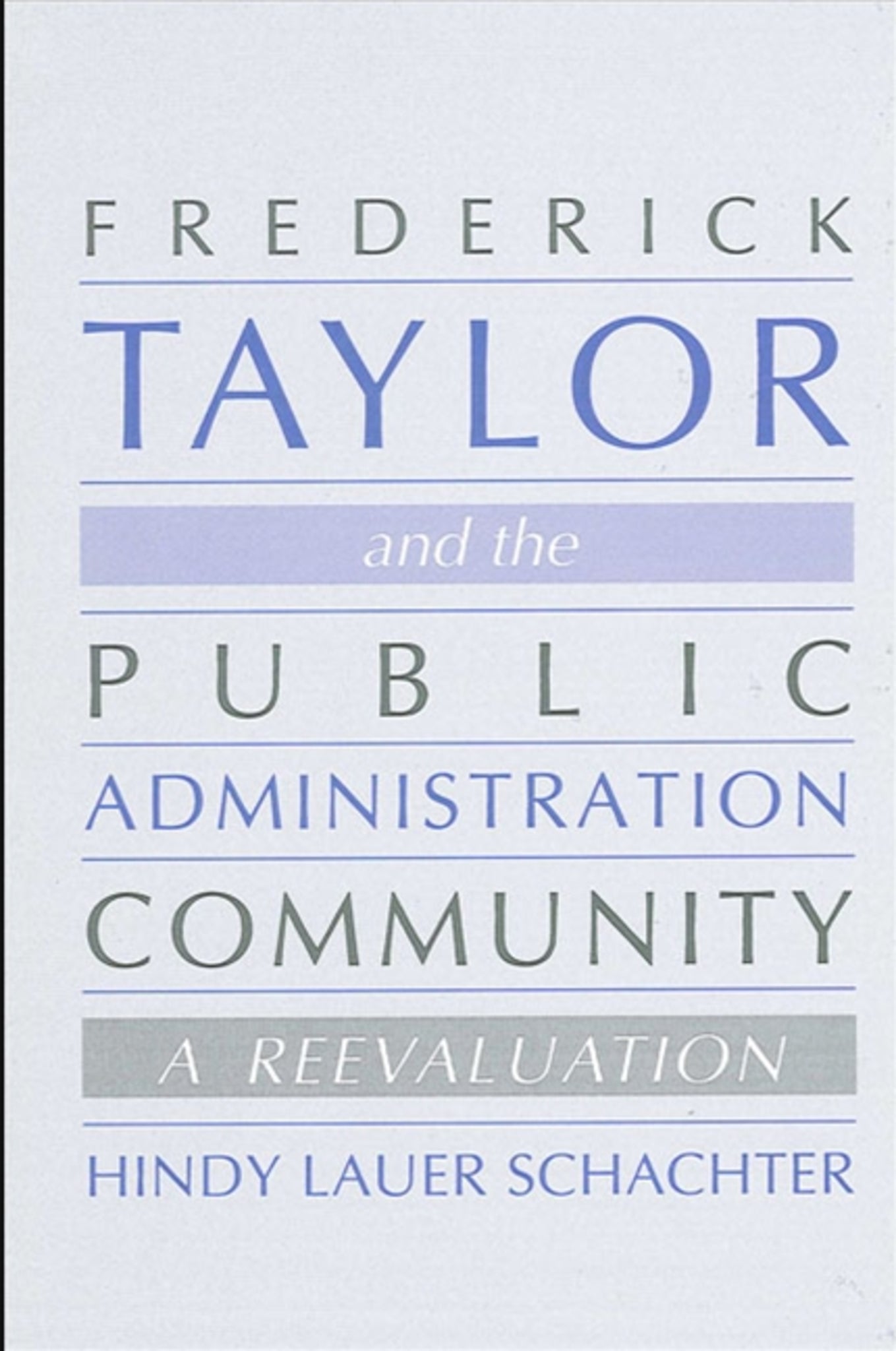We're sorry. An error has occurred
Please cancel or retry.
Frederick Taylor and the Public Administration Community

Some error occured while loading the Quick View. Please close the Quick View and try reloading the page.
Couldn't load pickup availability
- Format:
-
01 October 1989

This book argues that the "authoritarian" depiction of Frederick Taylor trivializes his important contribution. Schachter's analysis of Taylor's work shows that he actually originated many of the human relations insights that the literature attributes to Mayo, Maslow, and McGregor.
Introduced are two major arguments. Through an examination of Taylor's work, a new way of understanding his actual approach to management is opened. Also discussed are the political and historical reasons that led to the distortion of his work.


"The author makes a strong case that Frederick Taylor has been misrepresented completely in the Public Administration literature for the past 40 years. Further, she argues that this case reveals serious shortcomings in the way the field of public administration builds and communicates knowledge. It is bold and interesting." — Peter W. Colby, University of Central Florida
Acknowledgments
Chapter
1. Substance and Reputation
2. Taylor in Textbooks
3. Early Years
4. Scientific Management
5. Immediate Reception
6. Morris Cooke, a Link between Taylor and Public Administration
7. Scientific Management and Public Administration: Act One
8. Scientific Management and Public Administration: Act Two
Notes
Bibliography
Index



